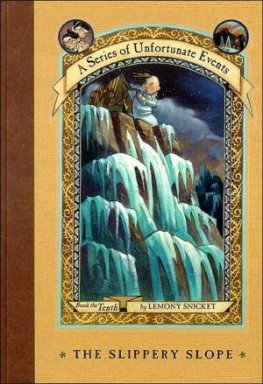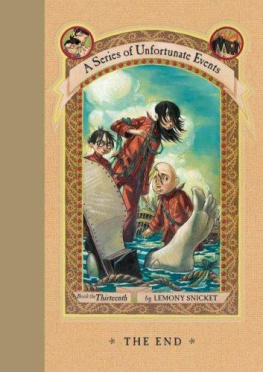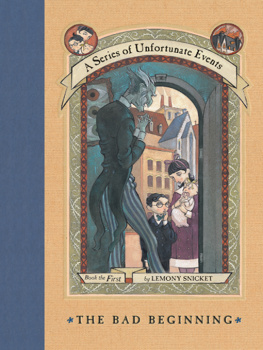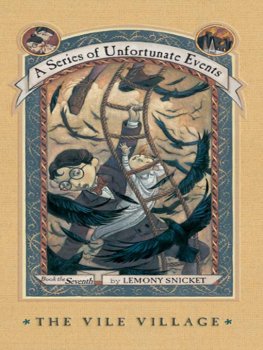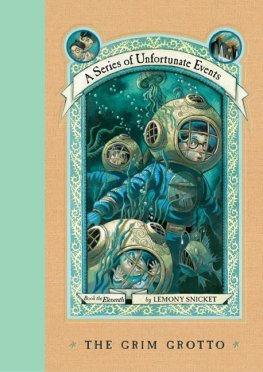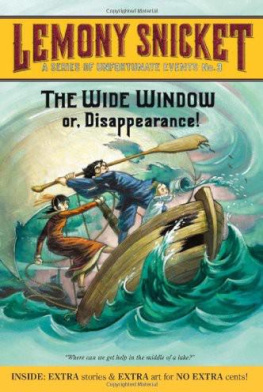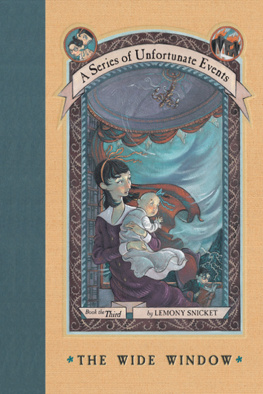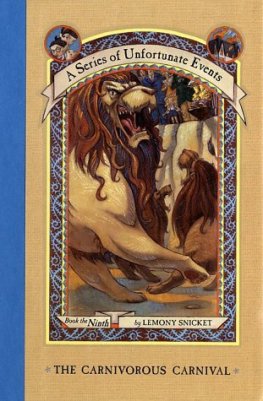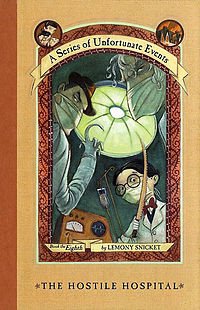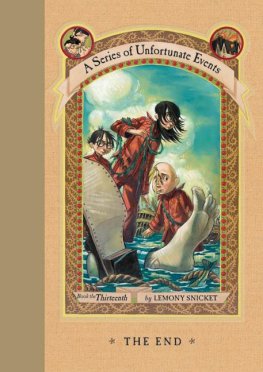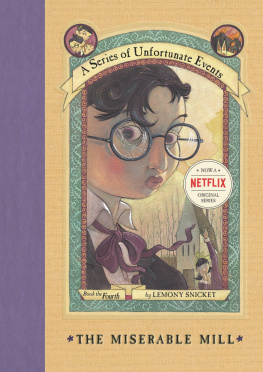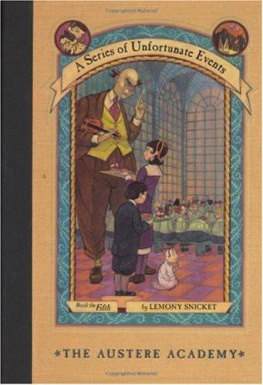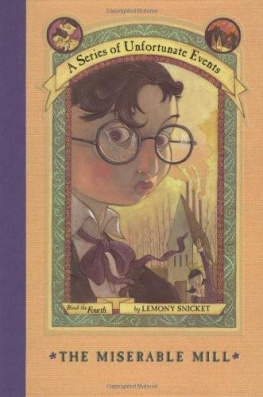Lemony Snicket - The Slippery Slope
Here you can read online Lemony Snicket - The Slippery Slope full text of the book (entire story) in english for free. Download pdf and epub, get meaning, cover and reviews about this ebook. year: 2003, genre: Adventure. Description of the work, (preface) as well as reviews are available. Best literature library LitArk.com created for fans of good reading and offers a wide selection of genres:
Romance novel
Science fiction
Adventure
Detective
Science
History
Home and family
Prose
Art
Politics
Computer
Non-fiction
Religion
Business
Children
Humor
Choose a favorite category and find really read worthwhile books. Enjoy immersion in the world of imagination, feel the emotions of the characters or learn something new for yourself, make an fascinating discovery.
- Book:The Slippery Slope
- Author:
- Genre:
- Year:2003
- Rating:5 / 5
- Favourites:Add to favourites
- Your mark:
- 100
- 1
- 2
- 3
- 4
- 5
The Slippery Slope: summary, description and annotation
We offer to read an annotation, description, summary or preface (depends on what the author of the book "The Slippery Slope" wrote himself). If you haven't found the necessary information about the book — write in the comments, we will try to find it.
The Slippery Slope — read online for free the complete book (whole text) full work
Below is the text of the book, divided by pages. System saving the place of the last page read, allows you to conveniently read the book "The Slippery Slope" online for free, without having to search again every time where you left off. Put a bookmark, and you can go to the page where you finished reading at any time.
Font size:
Interval:
Bookmark:
Chapter One
A man of my acquaintance once wrote a poem called "The Road Less Traveled," describing a journey he took through the woods along a path most travelers never used. The poet found that the road less traveled was peaceful but quite lonely, and he was probably a bit nervous as he went along, because if anything happened on the road less traveled, the other travelers would be on the road more frequently traveled and so couldn't hear him as he cried for help. Sure enough, that poet is now dead.
Like a dead poet, this book can be said to be on the road less traveled, because it begins with the three Baudelaire children on a path leading through the Mortmain Mountains, which is not a popular destination for travelers, and it ends in the churning waters of the Stricken Stream, which few travelers even go near. But this book is also on the road less traveled, because unlike books most people prefer, which provide comforting and entertaining tales about charming people and talking animals, the tale you are reading now is nothing but distressing and unnerving, and the people unfortunate enough to be in the story are far more desperate and frantic than charming, and I would prefer to not speak about the animals at all. For that reason, I can no more suggest the reading of this woeful book than I can recommend wandering around the woods by yourself, because like the road less traveled, this book is likely to make you feel lonely, miserable, and in need of help. The Baudelaire orphans, however, had no choice but to be on the road less traveled. Violet and Klaus, the two elder Baudelaires, were in a caravan, traveling very quickly along the high mountain path. Neither Violet, who was fourteen, nor Klaus, who had recently turned thirteen, had ever thought they would find themselves on this road, except perhaps with their parents on a family vacation. But the Baudelaire parents were nowhere to be found after a terrible fire destroyed their home although the children had reason to believe that one parent may not have died in the blaze after all and the caravan was not heading up the Mortmain Mountains, toward a secret headquarters the siblings had heard about and were hoping to find. The caravan was heading down the Mortmain Mountains, very quickly, with no way to control or stop its journey, so Violet and Klaus felt more like fish in a stormy sea than travelers on a vacation.
But Sunny Baudelaire was in a situation that could be said to be even more desperate. Sunny was the youngest Baudelaire, still learning to speak in a way that everyone could understand, so she scarcely had words for how frightened she was. Sunny was traveling uphill, toward the headquarters in the Mortmain Mountains, in an automobile that was working perfectly, but the driver of the automobile was a man who was reason enough for being terrified. Some people called this man wicked. Some called him facinorous, which is a fancy word for "wicked." But everyone called him Count Olaf, unless he was wearing one of his ridiculous disguises and making people call him a false name. Count Olaf was an actor, but he had largely abandoned his theatrical career to try to steal the enormous fortune the Baudelaire parents had left behind. Olaf's schemes to get the fortune had been mean-spirited and particularly complicated, but nevertheless he had managed to attract a girlfriend, a villainous and stylish woman named Esm Squalor, who was sitting next to Count Olaf in the car, cackling nastily and clutching Sunny on her lap. Also in the car were several employees of Olaf's, including a man with hooks instead of hands, two women who liked to wear white powder all over their faces, and three new comrades Olaf had recently recruited at Caligari Carnival. The Baudelaire children had been at the carnival, too, wearing disguises of their own, and had pretended to join Count Olaf in his treachery, but the villain had seen through their ruse, a phrase which here means "realized who they really were, and cut the knot attaching the caravan to the car, leaving Sunny in Olaf's clutches and her siblings tumbling toward their doom." Sunny sat in the car and felt Esm's long fingernails scratch her shoulders, and worried about what would happen to her and what was happening to her older siblings, as she heard their screams getting fainter and fainter as the car drove farther and farther away.
"We have to stop this caravan!" Klaus screamed. Hurriedly, he put on his glasses, as if by improving his vision he might improve the situation. But even in perfect focus, he could see their predicament was dire. The caravan had served as a home for several performers at the carnival's House of Freaks before they defected a word which here means "joined Count Olaf's band of revolting comrades" and now the contents of this tiny home were rattling and crashing with each bump in the road. Klaus ducked to avoid a roasting pan, which Hugo the hunchback had used to prepare meals and which had toppled off a shelf in the commotion. He lifted his feet from the floor as a set of dominoes skittered by a set that Colette the contortionist had liked to play with. And he squinted above him as a hammock swung violently overhead. An ambidextrous person named Kevin used to sleep in that hammock until he had joined Olaf's troupe, along with Hugo and Colette, and now it seemed like it might fall at any moment and trap the Baudelaires beneath it.
The only comforting thing that Klaus could see was his sister, who was looking around the caravan with a fierce and thoughtful expression and unbuttoning the shirt the two siblings were sharing as part of their disguise. "Help me get us out of these freakish pants we're both in," Violet said. "There's no use pretending we're a two-headed person anymore, and we both need to be as able-bodied as possible."
In moments, the two Baudelaires wriggled out of the oversized clothing they had taken from Count Olaf's disguise kit and were standing in regular clothes, trying to balance in the shaky caravan. Klaus quickly stepped out of the path of a falling potted plant, but he couldn't help smiling as he looked at his sister. Violet was tying her hair up in a ribbon to keep it out of her eyes, a sure sign that she was thinking up an invention. Violet's impressive mechanical skills had saved the Baudelaires' lives more times than they could count, and Klaus was certain that his sister could concoct something that could stop the caravan's perilous journey.
"Are you going to make a brake?" Klaus asked.
"Not yet," Violet said. "A brake interferes with the wheels of a vehicle, and this caravan's wheels are spinning too quickly for interference. I'm going to unhook these hammocks and use them as a drag chute."
"Drag chute?" Klaus said.
"Drag chutes are a little like parachutes attached to the back of a car," Violet explained hurriedly, as a coatrack clattered around her. She reached up to the hammock where she and Klaus had slept and quickly detached it from the wall. "Race drivers use them to help stop their cars when a race is over. If I dangle these hammocks out the caravan door, we should slow down considerably."
"What can I do?" Klaus said.
"Look in Hugo's pantry," Violet said, "and see if you can find anything sticky."
When someone tells you to do something unusual without an explanation, it is very difficult not to ask why, but Klaus had learned long ago to have faith in his sister's ideas, and quickly crossed to a large cupboard Hugo had used to store ingredients for the meals he prepared. The door of the cupboard was swinging back and forth as if a ghost were fighting with it, but most of the items were still rattling around inside. Klaus looked at the cupboard and thought of his baby sister, who was getting farther and farther away from him. Even though Sunny was still quite young, she had recently shown an interest in cooking, and Klaus remembered how she had made up her own hot chocolate recipe, and helped prepare a delicious soup the entire caravan had enjoyed. Klaus held the cupboard door open and peered inside, and hoped that his sister would survive to develop her culinary skills.
Font size:
Interval:
Bookmark:
Similar books «The Slippery Slope»
Look at similar books to The Slippery Slope. We have selected literature similar in name and meaning in the hope of providing readers with more options to find new, interesting, not yet read works.
Discussion, reviews of the book The Slippery Slope and just readers' own opinions. Leave your comments, write what you think about the work, its meaning or the main characters. Specify what exactly you liked and what you didn't like, and why you think so.

